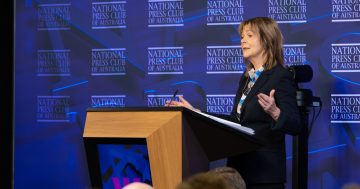
The union movement wants to see something similar to the National Training Guarantee reintroduced. Photo: wosunan.
Unions have called for a revival of a Paul Keating-style training levy to be imposed on employers to boost skill levels across the nation’s workforce.
As federal treasurer and prime minister in the first half of the 1990s, Mr Keating introduced and oversaw the National Training Guarantee scheme, requiring Australian businesses to contribute some of their income to employee training.
It amounted to a levy of 1.5 per cent of business payrolls. The scheme was suspended in 1994 and then abolished in 1996 due to negative publicity and a backlash from the small business sector.
The Australian Council of Trade Unions (ACTU) has now called for its return, saying a similar scheme is needed to prepare the workforce for changing national priorities.
It says between the energy transition and embracing artificial intelligence (and everything in between), thousands of workers will need to be reskilled and upskilled over the next decade.
The ACTU has made the call ahead of the Federal Government’s productivity roundtable scheduled for later this month.
ACTU assistant secretary Liam O’Brien said a levy should compel medium to large employers to contribute to the cost of training workers which was something they were currently failing to do.
“A higher-skilled workforce leads to higher productivity,” he said.
“The demands of a modern economy driven by an energy transition, industrial diversification and significant technological innovation will require a deeper investment in skills and education underpinned by an approach of lifelong learning.
“Employers have underinvested in both the formal skills and education and important on-the-job training necessary for Australia to succeed, with work-related training plummeting 14 per cent since 2007.”
Mr O’Brien said rather than seeing workers as assets they wanted to invest in, many employers had seen them as costs to reduce.
He said the National Training Guarantee worked in the 1990s to lift work-related training and should be on the table when it came to policies aimed at lifting productivity.
“We also need to address the collapse of apprentice commencements and completions,” he said.
“Alongside paying and supporting apprentices better, more investment in training will help reduce the skills shortage that is holding back further economic growth.”
A recent Committee for Economic Development of Australia (CEDA) study showed fewer workers were receiving training and those who did, received less time to do it.
CEDA reported the number of workers receiving work-related training from their employer had dropped by 14 per cent since 2007 and those given training spent 17 per cent less time doing it.
It found the decline in work-related training came despite it bringing higher incomes for workers and increased productivity for employers.
“Workers who trained were also more satisfied at work and more likely to report a promotion the year after training,” CEDA’s head of research Andrew Barker said at the time of the report’s release late last year.
“For employers, greater staff satisfaction and engagement are associated with higher productivity.
“Given the need to lift Australia’s productivity performance, increasing training should be a focus for employers and policymakers.”
The National Training Guarantee in the 1990s resulted in employers spending 18 per cent more on training, despite a recession at the time.
The ACTU said its reintroduction would complement a similar research and development levy proposed by the Australian Academy of Science.
That proposal aims to deliver extra investment in skills and training as an important precursor to the transformational research and development push workers are being urged to embrace.
Treasurer Jim Chalmers will host a three-day Economic Reform Roundtable (productivity roundtable) at Parliament House from 19 August.
Prime Minister Anthony Albanese said while all ideas were welcome ahead of the roundtable, not all would be automatically accepted.
“People can put forward whatever idea they want and what you’ll see is five or six ideas coming forward a day,” Mr Albanese said.
“That’s a good thing. It’s not government policy. Government policy is decided around a Cabinet table.”
Original Article published by Chris Johnson on Region Canberra.






